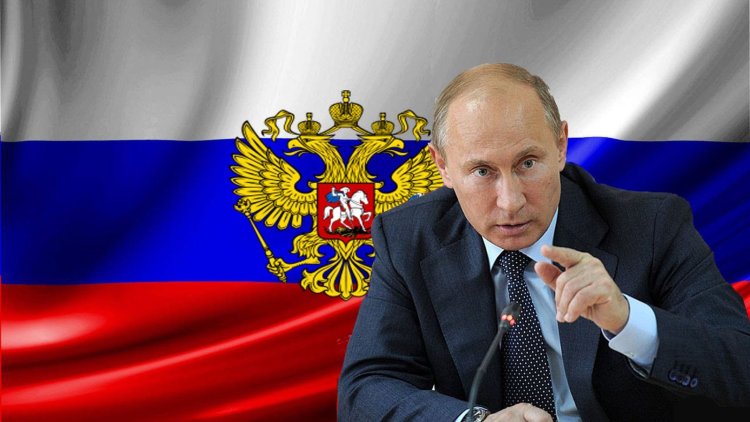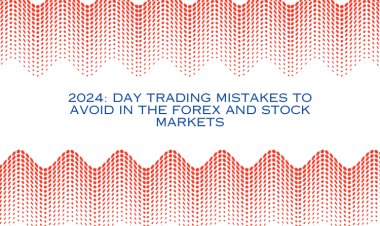Vladimir Putin: The Rise to Power and Global Impact
From KGB agent to global power player, unravel the enigma of Vladimir Putin's rise and reign. Explore his political maneuvers, economic reforms, and controversial foreign policy, deciphering his impact on Russia and the world stage.

Introduction
Vladimir Putin: The Rise to Power and Global Impact
-
A brief introduction to Vladimir Putin and his significance
-
Mention the Moscow apartment bombings as a key part of his rise to power.
-
Teaser about understanding Putin's background and motivations
-
The importance of exploring the impact of his actions on the global stage
Background: Putin's Early Years
Vladimir Putin's rise to power and global impact cannot be understood without exploring his background and early years. Before becoming a prominent figure in Russian politics, Putin had a career in the KGB, the Soviet Union's main intelligence agency. Here are some key points about his early years:
-
Putin's KGB recruitment and early years as a spy: Putin joined the KGB while attending Leningrad State University to study law. He joined the agency in 1975 and spent his first few years pushing papers in a Leningrad office.
-
Training at the foreign intelligence institute and assignment in Dresden: In the early 1980s, Putin was selected to attend the KGB's elite foreign intelligence training institute in Moscow. After completing his training, he was assigned to work in Dresden, East Germany.
-
Role in recruiting Communist Party and Stasi officials: While in Dresden, Putin's main role was to recruit Communist Party and Stasi officials. He was also involved in compromising visiting Westerners and gathering intelligence in West Germany.
-
Return to Russia and work at Leningrad State University: After five years in Dresden, Putin returned to Russia and resumed his work at Leningrad State University. During this time, he continued his duties as a KGB agent.
-
Dual role as a KGB agent and aide to the dean: While working at Leningrad State University, Putin had a dual role as a KGB agent and an aide to the dean. Although his cover story was that he worked for the dean, it was widely known that he was still involved with the KGB.
These early experiences in the KGB and academia shaped Putin's worldview and laid the foundation for his future career. They provided him with a deep understanding of intelligence operations, recruitment, and espionage, which would prove valuable in his rise to power.
Post-Soviet Collapse: Putin's Rise to Power
Vladimir Putin's journey to become one of the most influential leaders in the world began in the aftermath of the Soviet Union's collapse. Here are some key points in Putin's rise to power:
-
Disillusionment with the Soviet Union's decline: Putin, like many Russians, felt the chaos and decline of the Soviet Union deeply. He saw firsthand the decline in living standards and the humiliation that Russians faced after being a superpower.
-
Work for Anatoly Sobchak and exposure to post-Soviet chaos: After quitting the KGB, Putin worked for Anatoly Sobchak, a leading voice for democratic reforms. He witnessed the post-Soviet chaos and the decline in living standards in Russia.
-
Transition to Moscow and rise through political positions: Putin moved to Moscow and quickly rose through political positions. He held various roles, including in the Presidential Property Management Department and as Deputy Chief of Boris Yeltsin's presidential staff.
-
Acquisition of a Ph.D. in economics and leadership of the FSB: Putin obtained a Ph.D. in economics and became the director of the FSB, the intelligence agency that replaced the KGB. This position allowed him to consolidate power and establish control.
-
Putin's timing and establishment of trust with Boris Yeltsin: Putin's rise to power coincided with Boris Yeltsin's desire to find a successor who could rebuild Russia. Putin gained Yeltsin's trust and became the chosen successor, leading to his election as president.
Through a combination of political maneuvering, timing, and establishing trust with key figures, Putin rose to power in Russia. His experiences in the KGB and academia shaped his worldview and provided him with the skills and knowledge to lead.
The Moscow apartment bombings
The Moscow apartment bombings played a significant role in Vladimir Putin's rise to power. These bombings, which occurred in 1999, had a profound impact on Russian society and ultimately shaped the perception of Putin as a strong leader. Here are some key points about the bombings and their aftermath:
-
The significance of the Moscow apartment bombings in Putin's rise to power: The bombings created a sense of fear and chaos in Russia, which allowed Putin to position himself as a strong leader who could restore order and security.
-
Description of the bombings and their immediate aftermath: The first bombing took place on September 9, 1999, in an apartment building in southeast Moscow, and the second bombing took place on September 13 in a nearby apartment building. These bombings resulted in the deaths of over 200 people.
-
Suspicion and questions surrounding the official narrative: There have been lingering suspicions and questions about the official narrative of the bombings. Some believe that the Russian government may have orchestrated the bombings as a way to consolidate power and justify military action in Chechnya.
-
Putin's response and declaration of a massive bombing campaign in Chechnya: In response to the bombings, Putin declared a massive bombing campaign in Chechnya, blaming Chechen terrorists for the attacks. This marked the beginning of the Second Chechen War.
-
Impact of the bombings on Russian society and perception of Putin: The bombings instilled a sense of fear and vulnerability in Russian society, which led to increased support for Putin and his strong-handed approach. Many Russians saw him as a decisive leader who could protect the country from terrorism.
The Moscow apartment bombings were a turning point in Putin's career and helped solidify his position as a powerful leader in Russia. The suspicions and questions surrounding the bombings continue to be debated, but their impact on Russian society and the perception of Putin cannot be understated.
Putin's Consolidation of Power
Vladimir Putin's rise to power as President of Russia marked a significant consolidation of power. Here are some key aspects of Putin's consolidation of power:
-
Election as President: Putin was first elected as President in 2000, following his appointment as acting Prime Minister. He won subsequent elections in 2004, 2012, and 2018, solidifying his control over the country.
-
Domestic Policies and Actions: Putin implemented various domestic policies to centralize power and maintain control. He focused on strengthening the role of the state, suppressing regional autonomy, and consolidating control over key industries.
-
Suppression of Opposition and Control over the Media: Putin tightly controlled the opposition, limiting their influence and suppressing dissent. He also exerted control over the media, ensuring that his narrative and policies were widely disseminated.
-
Economic Growth and Support from the Russian Population: Putin's administration oversaw significant economic growth, which boosted his popularity among the Russian population. This support, coupled with effective propaganda and control over the media, helped solidify his power.
-
Image as a Strong Leader and Role in Establishing a New Global Order: Putin cultivated an image as a strong, decisive leader, which resonated with many Russians who yearned for stability and a return to Russia's former glory. He also played a significant role in challenging the existing global order, advocating for a multipolar world, and asserting Russian interests on the international stage.
Through various means, including election victories, domestic policies, suppression of opposition, economic growth, and a strong image, Putin consolidated his power in Russia. His actions and policies have shaped not only domestic politics but also had a significant impact on the global stage.
Global Impact: Putin's Foreign Policy
Vladimir Putin's foreign policy has had a significant impact on the global stage. His objectives in undermining the global order, his actions in Ukraine and the annexation of Crimea, his support for separatist movements and the destabilization of neighboring countries, his strengthening of alliances with China and other anti-Western powers, and his overall impact on the geopolitical landscape are all key factors to consider.
Putin's Objectives in Undermining the Global Order
Putin's main objective in undermining the global order is to weaken the influence and power of the West, particularly the United States and NATO. He sees the existing global order as dominated by Western powers, and he seeks to challenge their authority and establish a more multipolar world.
Examination of Actions in Ukraine and Annexation of Crimea
One of the most significant actions in Putin's foreign policy is his intervention in Ukraine and the subsequent annexation of Crimea. Putin saw Ukraine's pro-Western stance and aspirations to join NATO as a threat to Russian interests. In response, he supported separatist movements in eastern Ukraine and orchestrated the annexation of Crimea, effectively taking control of the region.
Support for Separatist Movements and Destabilisation of Neighbouring Countries
In addition to Ukraine, Putin has supported separatist movements in other neighboring countries, such as Georgia and Moldova. By backing these movements and promoting instability, Putin aims to exert influence and control over these regions, preventing them from aligning with the West and maintaining Russian influence.
Strengthening of Alliances with China and Other Anti-Western Powers
Putin has actively sought to strengthen alliances with anti-Western powers, most notably China. The partnership between Putin and Xi Jinping has deepened political, economic, and military cooperation between the two countries. This alliance serves as a counterbalance to Western influence and provides Russia with alternative avenues for global cooperation.
Impact of Putin's Actions on the Geopolitical Landscape
Putin's actions have had far-reaching implications for the geopolitical landscape. They have strained relations between Russia and the West, leading to economic sanctions, increased tensions, and a new Cold War-like atmosphere. The annexation of Crimea has also challenged the norms of international law and territorial integrity, setting a dangerous precedent for future conflicts.
Overall, Putin's foreign policy has had a significant global impact. His objectives to undermine the global order, actions in Ukraine and Crimea, support for separatist movements, strengthening of anti-Western alliances, and the resulting shifts in the geopolitical landscape have reshaped the dynamics of international politics.
Challenges to Putin's Power
Vladimir Putin has maintained a firm grip on power in Russia for over two decades. However, his leadership has faced criticism and challenges that have tested his authority. These challenges include:
Criticism and challenges to Putin's leadership
Putin's leadership style and policies have faced criticism both domestically and internationally. Many have accused him of suppressing political opposition, limiting freedom of speech, and maintaining a tight grip on the media. These criticisms have sparked protests and dissent among the Russian population.
Dissent within the Russian military and revelations from the Wagner group
There have been instances of dissent within the Russian military, with some soldiers and officers expressing dissatisfaction with Putin's leadership. One notable example is the Wagner Group, a shadowy mercenary organisation that has been linked to Russian military operations in Ukraine and other countries. The leader of the group, Evgeny Pregosian, openly criticised the Russian military's handling of the war in Ukraine, sparking tensions within the ranks.
Evgeny Pregosian's failed uprising
In a surprising turn of events, Evgeny Pregosian and his Wagner group attempted a rebellion against Putin's government. The group captured major military buildings in a Russian city and even moved an armoured column toward Moscow. While the rebellion was quickly quashed, it revealed underlying tensions and divisions within the Russian military and raised questions about Putin's control and authority.
The consequences of these challenges for Putin's grip on power
These challenges have consequences for Putin's grip on power. They highlight the growing discontent and dissatisfaction among certain segments of the Russian population, including within the military. They also expose vulnerabilities in Putin's leadership and raise questions about his ability to maintain control.
Shifts in perception and understanding of Putin's leadership
The challenges faced by Putin have led to shifts in the perception and understanding of his leadership. Both domestically and internationally, there is a growing recognition of the criticisms and dissent surrounding Putin's rule. This has led to a reevaluation of his actions and policies, as well as a reassessment of his role on the global stage.
Conclusion: Putin's Legacy and Future
Vladimir Putin's rise to power and global impact have left a lasting legacy for Russia and the world. His actions and alliances have had significant consequences and continue to shape the future of Russia and international relations. It is important to assess his legacy and understand the uncertainties surrounding his future and the future of Russia.
Assessment of Putin's legacy and impact on Russia and the world
Putin's legacy is marked by his consolidation of power in Russia and his assertive foreign policy. He has shaped domestic politics through his centralization of power, suppression of opposition, and control over the media. His economic policies and support from the Russian population have boosted his popularity and allowed for significant economic growth. On the global stage, Putin has challenged the existing world order and sought to undermine Western influence, particularly through actions in Ukraine and Crimea and support for separatist movements.
Potential consequences of his actions and alliances
The consequences of Putin's actions and alliances are far-reaching. His interventions in Ukraine, the annexation of Crimea, and support for separatist movements have strained relations between Russia and the West, leading to economic sanctions and heightened tensions. These actions have also challenged international norms and territorial integrity, setting dangerous precedents for future conflicts. His alliances with China and other anti-Western powers have reshaped the geopolitical landscape, creating a counterbalance to Western influence and shifting the balance of power.
Uncertainty surrounding his future and the future of Russia
There is uncertainty surrounding Putin's future and the future of Russia. As his grip on power tightens and challenges to his leadership emerge, the stability of his regime is questioned. The internal divisions within the Russian military and revelations from the Wagner group highlight vulnerabilities and raise questions about his control and authority. The impact of economic challenges, demographic shifts, and growing discontent among the Russian population further contributes to the uncertainty surrounding the future of Russia.
The importance of continued monitoring and analysis of Putin's actions
Given the significance of Putin's actions and their impact on both Russia and the world, it is crucial to continue monitoring and analyzing his actions. Understanding his motivations, strategies, and the consequences of his decisions is essential for policymakers, researchers, and the general public. Ongoing analysis can inform policy responses, shape international relations, and help anticipate future developments.
Final thoughts on understanding Vladimir Putin
Vladimir Putin is a complex and influential figure who has left a lasting impact on Russia and the world. His rise to power, consolidation of authority, and assertive foreign policy have shaped domestic politics and challenged the existing global order. Understanding Putin requires an examination of his background, motivations, and the consequences of his actions. It also necessitates ongoing monitoring and analysis to inform decision-making and anticipate future developments. By engaging in a deep understanding of Vladimir Putin, we can better comprehend the complexities of international politics and the evolving dynamics of power.



 admin
admin 










